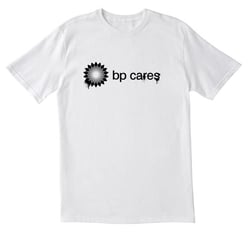Is BP Reverse-Engineering Online Reputation Management?

Fewer stories will be remembered in 2010 as much as the BP oil disaster in the Gulf of Mexico. Its effects will be felt for decades, to be sure. What has yet to be seen is how BP will fare in the court of public opinion moving forward. Of course, people are upset. And when they are upset, they vent. One place people vent these days is on Twitter. While that's to be expected, BP's response (or lack thereof) is quite interesting.
Advertising Age reports that a fake Twitter feed, @BPGlobalPR, was set up last week not by BP but by an unidentified individual. This person started posting tongue-in-cheek updates acting as a PR spokesperson for BP. The results have been explosive -- more than 38,750 people now follow the feed (as of this writing) compared to just over 5,600 for the real BP account, @BP_America. There's even an associated hashtag, #bpcares. The tweets are clearly parodies, such as:
"Eating at a very expensive restaurant and spilled salad dressing on my pants. Not sure how to tackle this."
"Dropping everything to work on our "Oil Slickers" movie script. Hopefully Billy Crystal is available/willing to work with oil. #bpcares"
"The ocean looks just a bit slimmer today. Dressing it in black really did the trick! #bpcares"
"The good news: Mermaids are real. The bad news: They are now extinct. #bpcares"
What's fascinating is that BP is aware of the fake Twitter account but has decided to not take action against it ... for now. Toby Odone, a BP spokesperson told Ad Age, "People are entitled to their views on what we're doing and we have to live with those. We are doing the best we can to deal with the current situation and to try to stop the oil from flowing and to then clean it up."
Is this simply because BP has, er ... bigger messes to clean up than a fake Twitter account, or is it a master stroke of PR?
 In an age of transparency many companies have discovered that attempts to silence critics or seed positive feedback can have disastrous effects. BP appears to be taking transparency seriously. By letting people express their frustrations and concerns there is a smaller (and more focused) target on BP as a whole. And, this particular venue incorporates a healthy dose of humor. As we all know, laughter is the best medicine -- or so BP hopes. What's more, the Twitter account in question is selling T-shirts emblazoned with an oil-stained "BP cares" mark. According to the Twitter account, all proceeds are being donated to HealthyGulf.org. That's good for the environment and good for BP -- the brand is now associated with a grass-roots movement to protect the environment without performing a single keystroke. What should be very interesting to watch is how the public reacts when the oil leak is plugged and clean-up is in full swing. Will @BPGlobalPR then become a BP advocate?
In an age of transparency many companies have discovered that attempts to silence critics or seed positive feedback can have disastrous effects. BP appears to be taking transparency seriously. By letting people express their frustrations and concerns there is a smaller (and more focused) target on BP as a whole. And, this particular venue incorporates a healthy dose of humor. As we all know, laughter is the best medicine -- or so BP hopes. What's more, the Twitter account in question is selling T-shirts emblazoned with an oil-stained "BP cares" mark. According to the Twitter account, all proceeds are being donated to HealthyGulf.org. That's good for the environment and good for BP -- the brand is now associated with a grass-roots movement to protect the environment without performing a single keystroke. What should be very interesting to watch is how the public reacts when the oil leak is plugged and clean-up is in full swing. Will @BPGlobalPR then become a BP advocate?
Of course, there's another practical side to BP's turn-the-other-cheek attitude. Imagine if BP now decided to silence that Twitter account, which it surely could do. The outcry on Twitter could be deafening and certainly has the potential to cause even more damage. What's more, people could surely find other venues to vent. A quick search on Facebook finds a handful of BP-related pages, such as "Boycott BP" (123,433 fans), "Boycott BP Until They Clean Up the Gulf Oil Spill" (8,681 fans) and the all-inclusive "BP SUCKS!" (1,558 fans). Free speech isn't going away and there is no possible way that BP can silence all of their online critics -- no matter what.
What do you think? Is BP wily, or just wary?
By the way, in the time it took to write this post, @BPGlobalPR gained more than 2,000 new followers.

Subscribe to Our Newsletter!
Latest in Marketing








